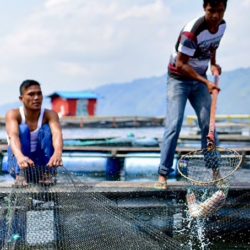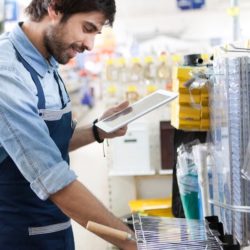Jumbo introduces blockchain-based supply chain visibility for tilapia

Dutch grocery retailer Jumbo intends to use blockchain to provide visibility into the tilapia supply chain. Customers will be able to see how the fish travelled all the way from the fish farm in Indonesia and ended up on supermarket shelves in the Netherlands.
“At Jumbo, we consider it important to know who we’re doing business with,” says Olaf de Boer, Commercial Director at Jumbo. “Our customers need to have peace of mind that the products we sell have been produced with respect for people, animals and the environment. And we’ve noticed that consumers increasingly want to know where their food comes from. We already have substantial insight into our food chains thanks to our supplier management system, our certification requirements and the audits we conduct in high-risk countries. Blockchain is a welcome addition that will help us to gain an even clearer view of the risks and take action where necessary.”
Scanning the on-pack QR code
Consumers can simply use their smartphone to scan the QR code on the product packaging to gain insight into the tilapia’s entire journey from farm to fork. For example, they can see that the fish has been farmed, processed, frozen and packaged in Indonesia before being shipped to the Port of Rotterdam. Import to the Netherlands is handled by Seafood Connection in Urk, where the bags of frozen fish are stored until needed by Jumbo. Fish processing company Mayonna in Spakenburg thaws and processes the fish into chilled, pre-packed tilapia fillets to order for Jumbo, and the retailer also sells frozen tilapia products.
Collaboration with SIM Supply Chain
The blockchain technology, which has been developed in conjunction with SIM Supply Chain, shows that Regal Springs is one of the farms Jumbo works with. Regal Springs raises the fish – in line with the ASC certification standards – in Lake Toba and also monitors the water quality. The working conditions at Regal Springs are audited regularly; SIM Supply Chain verifies the resulting data and audit reports. Among other things, the data shows that Regal Springs pays above the minimum wage in the farming sector and that all its employees have health insurance and are offered free transport and a meal.
Incidentally, other grocery retailers are already working with blockchain too. For example, Albert Heijn has used the technology for its orange juice and the Plus chain has utilized it for bananas.










